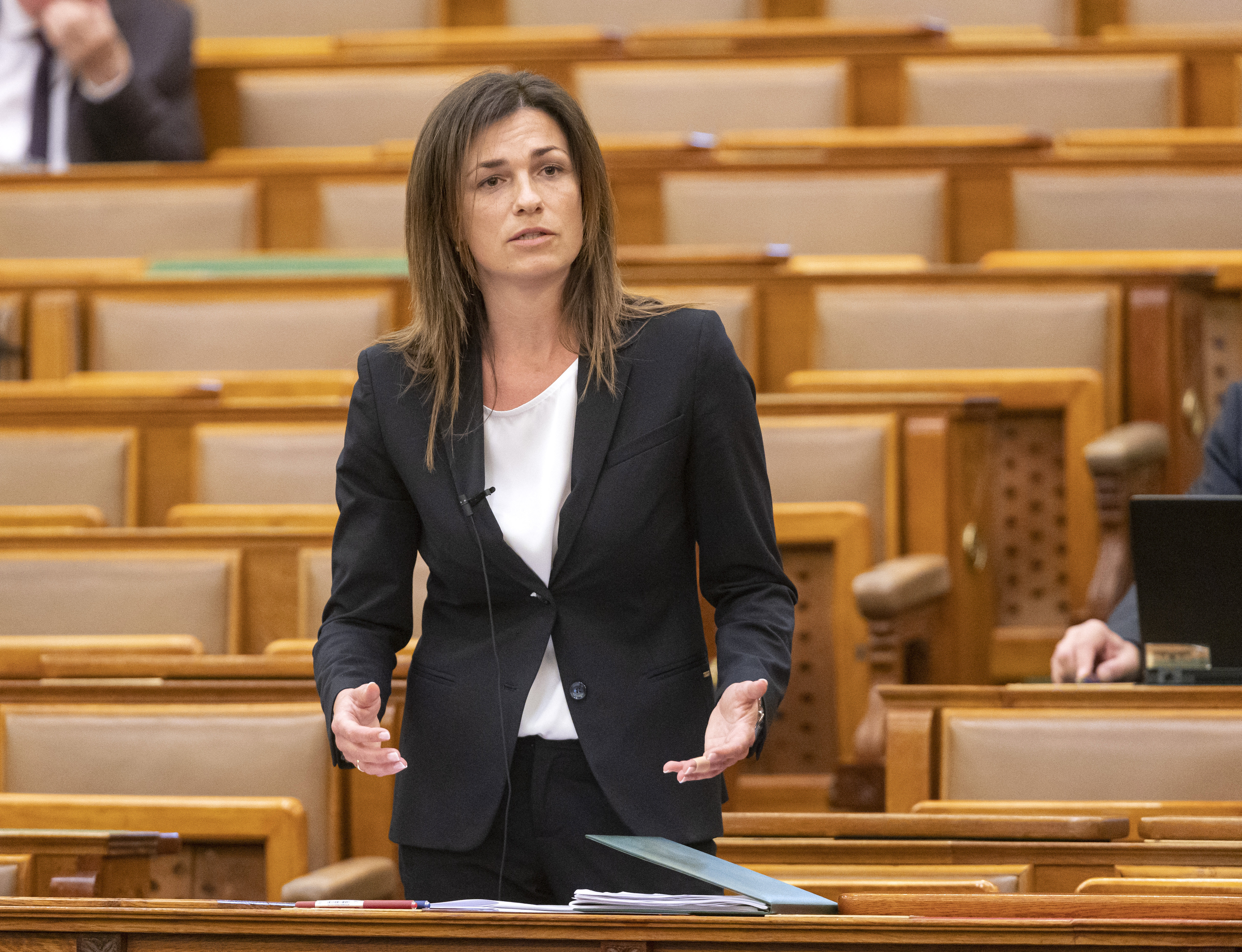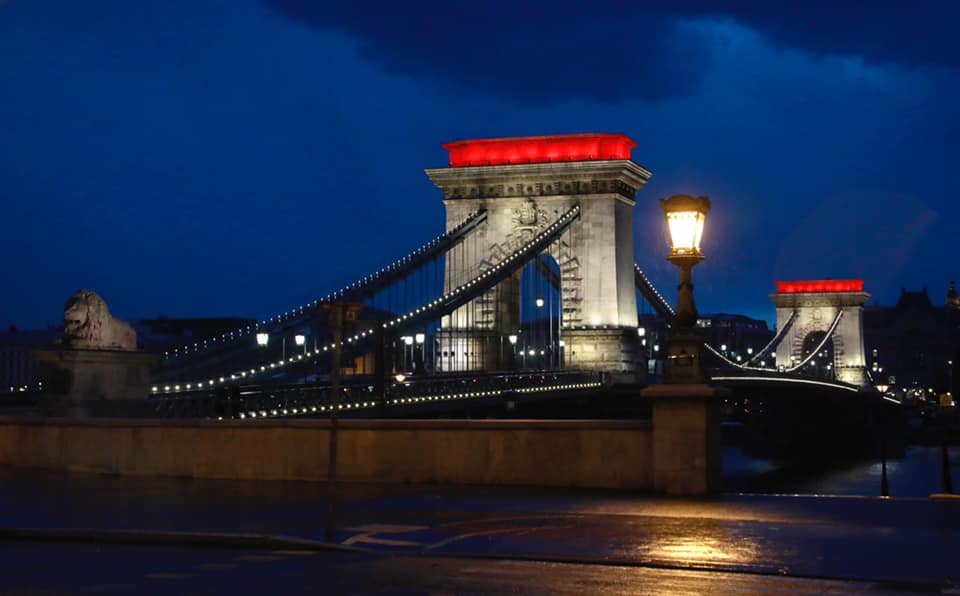Foreign Minister Szijjártó threatens public employees with dismissal if they work from home during pandemic
- Stay updated on the latest news from Hungary by signing up for the free InsightHungary newsletter:
At an ambassadorial summit in Budapest on Tuesday, Foreign Minister Péter Szijjártó threatened to fire employees of the Ministry of Foreign Affairs and Trade who wish to work from home during the coronavirus pandemic.
Szijjártó's statement came after more than a dozen labor unions representing public employees - including the union of Foreign Ministry employees - addressed a letter in March to Prime Minister Viktor Orbán requesting arrangements to be made to allow them to work from home. The unions argued that while the government had issued a decree allowing employers to order home office work, "it does not support the same thing in its own competence as an employer".
Speaking on Tuesday, Szijjártó said he had asked for a "list of names" of employees whose work was not needed in the Ministry. "I added in parentheses that they can get rid of those people permanently. Interestingly, not a single name appeared on the lists," he said.
"We've never played the union game in the Foreign Ministry, and we won't in the future either," Szijjártó added. "And if anybody feels like playing that game, they will have the opportunity to do so outside of the Ministry."
On Wednesday, president of the Hungarian public workers trade union Mrs. Péter Boros told Mérce that Szijjártó's statement could be unlawful.
"I think there is democracy in Hungary, and the Constitution guarantees the right to organize. That's why such words from a top ministerial head can only be illegal," she said.
The trade union plans a three-day strike of public workers at the beginning of September, and argues the government has still not reimbursed local governments for expenses related to pandemic defense.
Szijjártó appeared for the first time in public on Tuesday after being implicated in a possible corruption controversy surrounding a vacation he took on a luxury yacht owned by a businessman who has benefitted from government contracts.
Szijjártó was questioned about the vacation by a group of reporters at a road opening ceremony in the town of Hajdúsámson. The minister refused to answer questions on whether he had received use of the €20 million yacht as a gift from its owner László Szíjj - Hungary's fourth wealthiest person and the beneficiary of many state contracts - or whether he paid for the vacation himself. (As we reported earlier, rental of such a yacht would amount to nearly four years of Szijjártó's official salary.)
Speaking to journalists, Szijjártó insisted repeatedly that:
- his family vacation is a private matter
- he, his family, and his friends enjoy the rights to a private life
- he followed all laws while on his luxury vacation in the Adriatic
Government officials test positive for coronavirus, new travel restrictions planned
Fidesz spokesman and MP István Hollik has tested positive for the coronavirus, the politician wrote on Facebook Thursday.
"The coronavirus caught up with me," Hollik wrote. "Since I took part in a private event last Saturday, I have provided the authorities with all of my contacts in accordance with the rules. This affects several of my governing party colleagues as well."
Earlier on Thursday, the Prime Minister's office announced that Viktor Orbán's chief of staff Gergely Gulyás and state secretary Balázs Orbán were placed in mandatory quarantine on Wednesday after an unnamed guest of a private event they both attended (likely Hollik) tested positive for the virus. It was later reported that all three men had been at the same open-air party in the Balaton Uplands.
Justice Minister Judit Varga wrote on Facebook Thursday afternoon that she had come into contact on Monday with a person who had tested positive for the coronavirus. Her first test results came back negative, she wrote, adding that she would continue her work from home quarantine.
Átlátszó reports that two other government employees - Ministry of Innovation and Technology deputy state secretary Dr. Károly Balázs Solymár, and his partner, who also works in the ministry - were also infected by the coronavirus while on vacation in Turkey at the beginning of July. After the pair received positive tests following their return to Hungary, the Ministry reportedly sent many of its employees to be tested. No public announcement was made concerning the infections within the ministry.
Last week, Gulyás announced at a press conference that travel restrictions would be introduced beginning September 1 in response to increasing coronavirus cases in Hungary and other European countries. Gulyás instructed Hungarians not to make travel plans abroad after that date, especially not to countries in southern Europe. Prime Minister Viktor Orbán confirmed on Friday that new restrictions would be imposed, saying the greatest danger to Hungary came from the coronavirus being introduced from abroad.
The number of new registered coronavirus cases in Hungary jumped to 91 on Thursday, the highest daily number since late April. The increase is part of an upward trend of new infections which has risen since a low period between mid-June and mid-July.
Active cases of the disease are also on the rise: on Thursday, there were 1,008 active coronavirus cases in the country, higher than at any time since June 15. There have been 614 coronavirus deaths in Hungary so far, and 69 patients are currently being treated in hospital, eight of which are on ventilators.
Hungary paid up to 50 times more for Chinese ventilators than other EU countries
Import statistics from Eurostat show that the Hungarian government paid China as much as 50 times more for ventilators and other respiratory equipment than some other European Union countries, vastly outspending any other Member State.
On Tuesday, 444 published the results of an investigation of the contracts the government signed in its purchases of respiratory equipment, which were obtained from the Ministry of Foreign Affairs and Trade through a freedom of information request. Drawing on that data, Direkt36 reports that while government officials have pointed to fierce competition for Chinese-made equipment as a reason for the high prices paid for ventilators, other EU countries obtained more equipment for far less.
The data analysis by 444 and Direkt36 shows that since March, Hungary has paid the highest unit price per kilogram in the EU for respiratory equipment from China. Hungary also spent the most on Chinese respiratory equipment in total, spending €482 million between March and June. This figure dwarfs spending by Spain, the nearest competitor, which spent less than €60 million on Chinese respiratory equipment.
The major expenditures did not result in Hungary receiving the most protective equipment: by kilogram, Hungary received the third most Chinese equipment in Europe, following Germany and the Netherlands. While Hungary purchased 567 tons of equipment for €482 million, Germany purchased nearly twice as much for less than €31 million. Additionally, the Netherlands purchased 582 tons of respiratory equipment for €13.7 million, 35 times less than the total paid by Hungary.
In April, Hungary spent €1,410 per kg on Chinese respiratory equipment, more than 50 times the rate paid by Germany (€27 per kg).
As we reported in June, the government announced it had ordered 16,000 ventilators, primarily from China, for a total cost of 300 billion forints (€842 million). The highest number of patients on ventilators at the peak of the pandemic was 80, while the average was 60. Before the pandemic, Hungary had some 1,500-2,000 machines in its stockpile.
Karácsony joins other Visegrád 4 mayors condemning violence against protesters in Belarus
The mayors of the Pact of Free Cities - Budapest, Prague, Bratislava and Warsaw - issued a statement Wednesday extending their solidarity to anti-government protesters in Belarus, and condemning the "unacceptable violence exercised by state authorities".
"The future of Belarus must lie with the people of Belarus, and not with Europe's last dictator, Alexander Lukashenko and his enablers," the mayors wrote. They called on the European Union to review its policy on Belarus and to take measures against those responsible for the violent crackdown.
The mayors vowed to place the historic white-red-white Belarusian flag - a symbol of the protest movement against Lukashenko's government - on their city halls "in solidarity with the ordinary citizens from all walks of life who dare speak truth to power and march for their freedom".
Earlier, Budapest mayor Gergely Karácsony ordered the Chain Bridge in Budapest to be illuminated in red and white in solidarity with protesters in Belarus, where he said a "despicable charade" had been made out of recent elections.
The Hungarian government has remained quiet on the crisis in Belarus, neglecting to condemn the disputed elections or the violent police crackdown on protesters.



